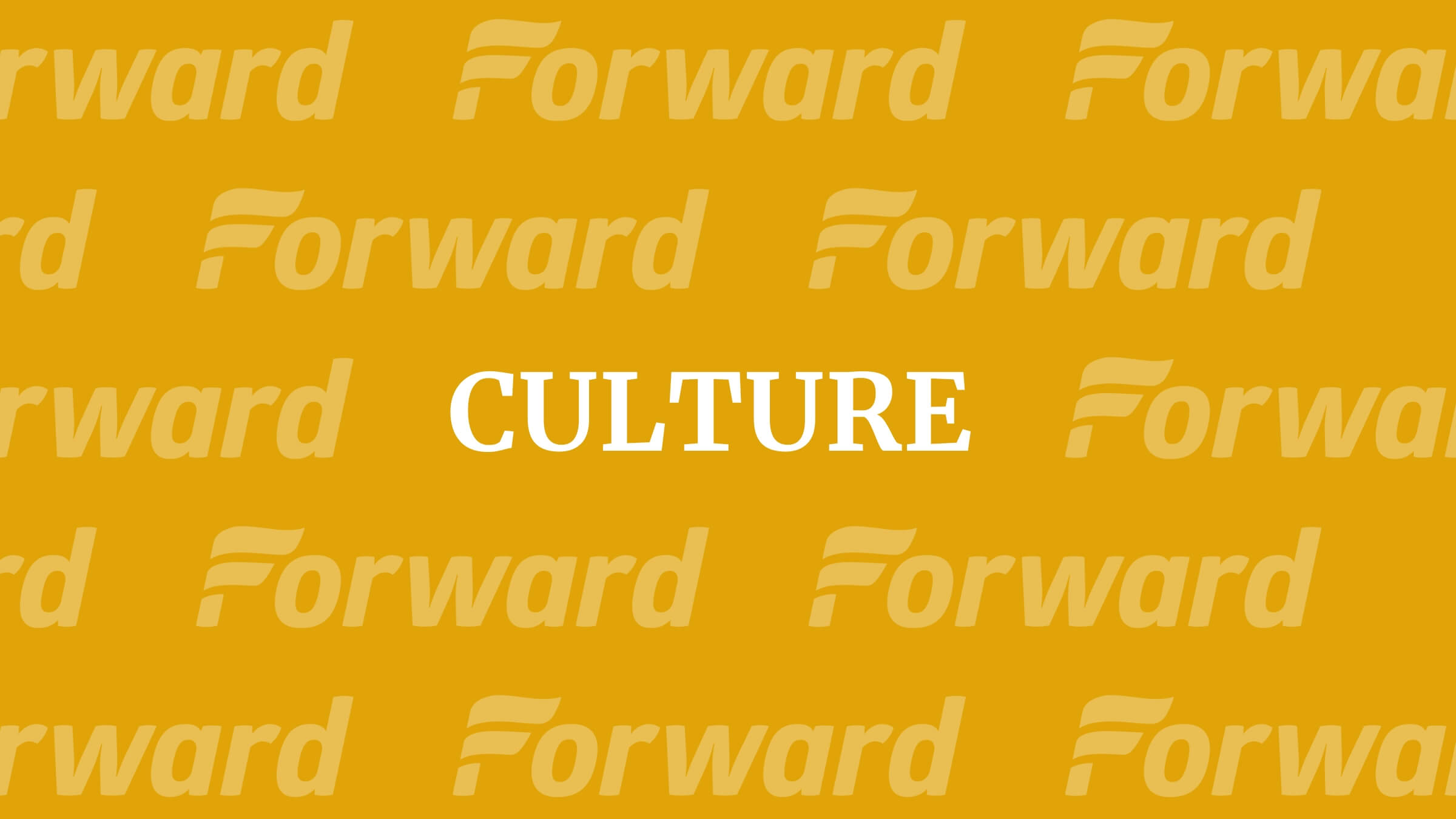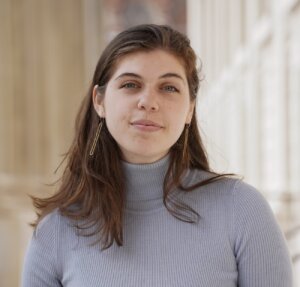Rachel Bloom’s new show is all about death — and it may be her most Jewish one yet
The ‘Crazy Ex-Girlfriend’ creator is back with a musical comedy about looming mortality and existential dread

Graphic by Angelie Zaslavsky
In Rachel Bloom’s new musical comedy special, death is a heckler.
Specifically, he’s an aggravated, angst-ridden Grim Reaper in a stylish hoodie-and-jacket combo. And deep down, like many of us, he just wants to be seen.
In Death, Let Me Do My Show, Bloom, the musical comedy savant responsible for the best song about Holocaust trauma ever to air on television, stages an off-Broadway encounter with mortality. It’s her first major performance of new material since Crazy Ex-Girlfriend, the TV show that made her a star, ended in 2019. Her comedic persona has matured, but at her core, she’s still a brilliant parodist who likes to make sexy things gross. By applying her signature theater kid energy and self-aware feminist lens to the horrors of the COVID-19 pandemic, new motherhood and atheism, she highlights the inherent absurdity in confronting death.
Since 2020, Bloom and Death have, as Death says during the show, “had a thing.”
Bloom’s writing partner, Adam Schlessinger, died of COVID-19 at age 52, less than a month into the pandemic, just after Bloom gave birth to her first child. For the first time in her life, Bloom saw death everywhere. She bleach-wiped every new package that entered her home and researched how basic household objects could kill infants. She dreaded her dog’s death so much that she built a preemptive shrine in her honor.
Bloom knows that her fans know she’s changed. That’s what makes her return to musical comedy, a form it seemed like she might have already stretched as far as it could go in Crazy Ex-Girlfriend, so compelling.
Bloom is no stranger to mining humor in dark subject matters. Crazy Ex-Girlfriend was renowned for its ability to find the humor in mental illness, misogyny and strained parent-child relationships — all in a single episode. And Bloom’s comedy generally works best when it’s at its most transgressive — say, tackling the taboo around antidepressants with a tap number, or debunking misconceptions about bisexuality in a dad-rock anthem.
But the tension at the heart of Death, Let Me Do My Show isn’t about how we can joke about death. It’s about how, when death is inevitable, we can joke at all.
Structurally, the show borrows from a recent crop of stand-up specials that veer into serious solo performance. It starts with the premise that Bloom is here to perform the pre-pandemic musical comedy special she never got to take on tour – or, as she says, to “PARTY LIKE IT’S 2019 BECAUSE THAT’S WHEN MY MATERIAL’S FROM!” She sings a song about trees that smell like semen and promises a follow-up about a similarly odorous bush, but the show quickly takes a turn.
Death doesn’t want to hear more of Bloom’s old material. He wants her to talk about him.
So Bloom redirects, moving into a section about her obsession with her beloved dog’s impending death. He pushes her to go further, taunting. “I know you have more to say about me, Rachel.”
As Death, David Hull — who co-starred with Bloom on Crazy Ex-Girlfriend — brings a wacky, cartoon villain sensibility to the role. His brooding is just ridiculous enough to complement Bloom’s humor, without getting in the way of her earnestness. Eventually, he becomes her companion, a fellow outsider who doesn’t know how to cope with feeling invisible. As Bloom reveals more of herself, so does Death. (For Death’s big song, Hull performs an uncanny Dear Evan Hansen spoof, which, as you can imagine, kills in a room full of musical theater fanatics.)
To execute those tricky emotional shifts, the show relies on perhaps Bloom’s strongest point as a comedian: her knack for parody. Here, she features a “Monster Mash”-esque song about the terror of not believing in an afterlife (“The spookiest scariest ghost … is no ghost”) and a Kacey Musgraves-infused country ballad about the so-called “rainbow bridge” pets take to Heaven.
But the show itself operates as a parody on a macrocosmic scale. By treating the special as a hyper-specific reference to the genre of stand-up comedian solo shows, Bloom finds a novel take on the form. She deftly guides the audience into the deep well of grief at the show’s heart by easing tension with well-timed punch lines. Just when I worried a story about trying to get her infant discharged from the Neonatal Intensive Care Unit might get too bleak to be redeemable, Bloom landed a punch line about psychiatrists being the closest thing atheist Jews have to God.
As the show goes on, Bloom gives in to pathos. She does speak candidly about losing Schlessinger, as well as other friends throughout the pandemic, and how those losses made her seriously question the viability of the kind of entertainment that she does. But the show ultimately serves as a reminder that it’s after the darkest moments that we need to laugh the most.
As the show comes to a close, Bloom and Death stand side by side on stage. He’s made his presence known, she’s paid him the attention he’s wanted, and they’ve let something somber into the room that can’t be taken back. But Death didn’t want to ruin comedy. He just couldn’t stand being ignored.
Their task, then, is clear: to learn how to acknowledge death without detracting from life. So, in the absence of any tidy conclusions, Bloom and Death step toward the audience, lift up their microphones and sing a duet.
















